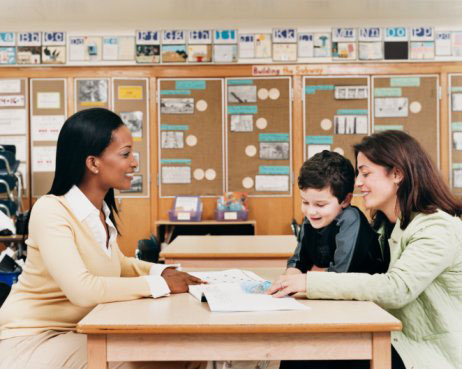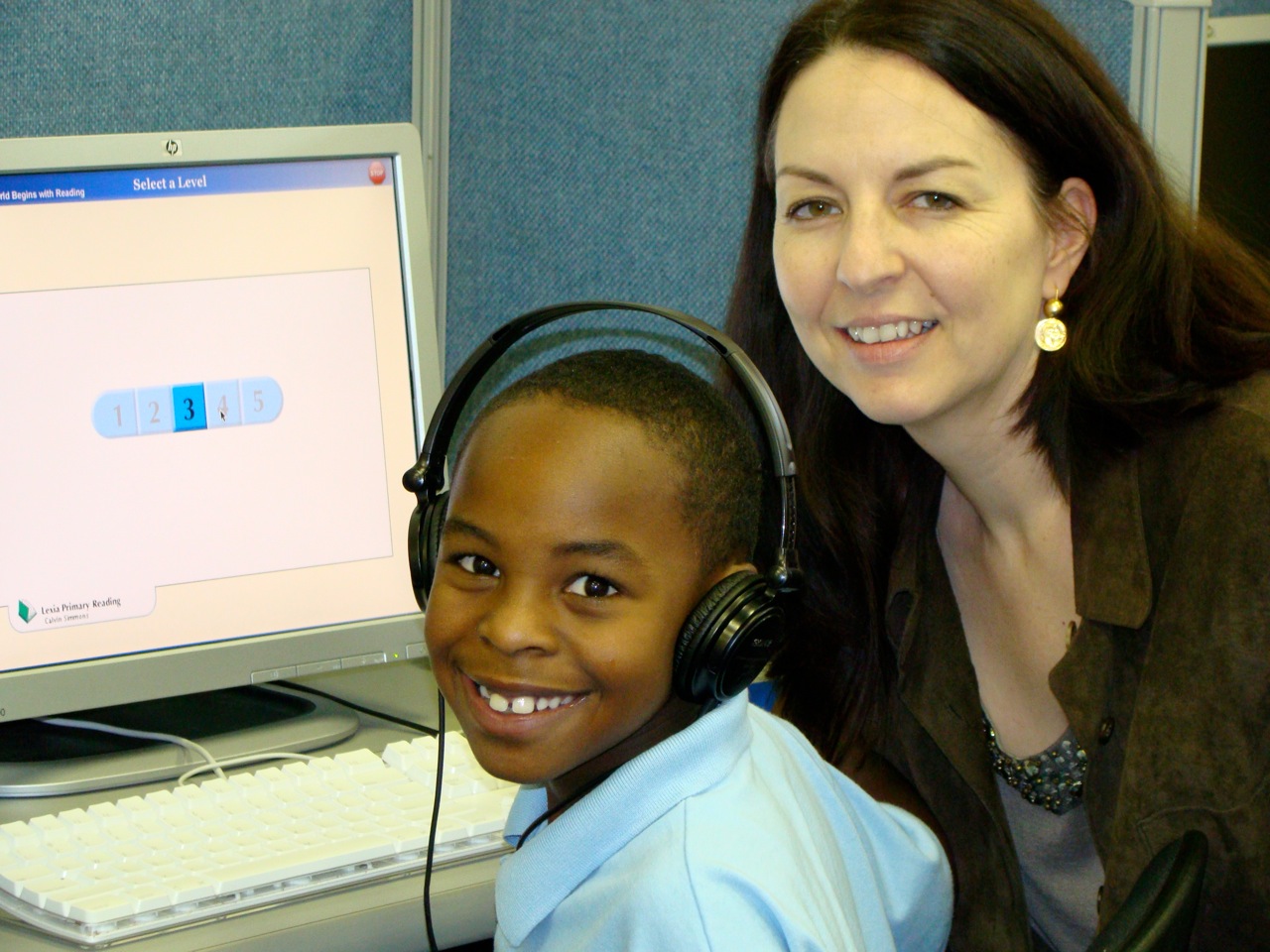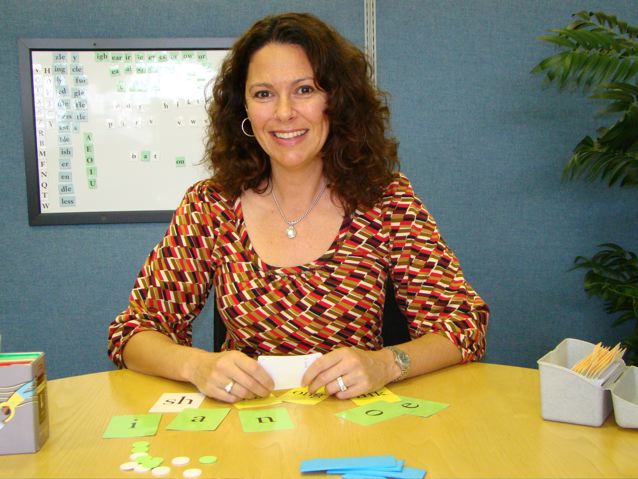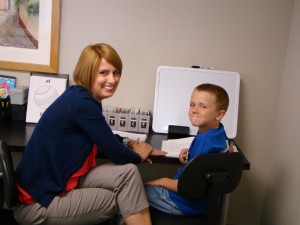
by PRIDE Reading Program Admin | Apr 14, 2012 | A PRIDE Post, Reading Skills
The school year is coming to an end and as a parent of a first grader your thoughts are probably turning towards second grade. Is your child ready for second grade reading?
How do you know?
Here is a list of benchmark reading accomplishments for first grade that was included in a report prepared by a National Academy of Sciences panel titled Preventing Reading difficulties in Young Children, Catherine E. Snow.
- Makes a transition from emergent to “real” reading.
- Reads aloud with accuracy and comprehension any text that is appropriately designed for the first half of grade 1.
- Accurately decodes orthographically regular one-syllable words and nonsense words (e.g., sit, zot), using print-sound mappings to sound out unknown words.
- Uses letter-sound correspondence knowledge to sound out unknown words when reading text.
- Recognizes common, irregularly spelled words by sight (have, said, where, two).
- Has a reading vocabulary of 300 to 500 words, sight words, and easily sounded-out words.
- Monitors own reading and self-corrects when an incorrectly identified word does not fit with cues provided by the letters in the word or the context surrounding the word.
- Reads and comprehends both fiction and nonfiction that are appropriately designed for grade level.
- Shows evidence of expanding language repertory, including increasing appropriate use of standard, more formal language registers.
- Creates own written texts for others to read.
- Notices when difficulties are encountered in understanding text.
- Reads and understands simple written instructions.
- Predicts and justifies what will happen next in stories.
- Discusses prior knowledge of topics in expository texts.
- Discusses how, why, and what-if questions in sharing nonfiction texts.
- Describes new information gained from texts in own words.
- Distinguishes whether simple sentences are incomplete or fail to make sense.
- Can answer simple written comprehension questions based on material read.
- Can count the number of syllables in a word.
- Can blend or segment the phonemes of most one-syllable words.
- Spells correctly three-and four-letter short-vowel words.
- Composes fairly readable first drafts using appropriate parts of the writing process (some attention to planning, drafting, rereading for meaning and some self-correction).
- Uses invented spelling/phonics-based knowledge to spell independently, when necessary.
- Shows spelling consciousness or sensitivity to conventional spelling.
- Uses basic punctuation and capitalization.
- Produces a variety of types of compositions (e.g., stories, descriptions, journal entries) showing appropriate relationships between printed text, illustrations, and other graphics.
- Engages in a variety of literary activities voluntarily (e.g., choosing books and stories to read, writing a note to a friend).
________________________________________________________________________________________________
Karina Richland, M.A. is the Founder and Director of Pride Learning Centers, located in Los Angeles and Orange County. Ms. Richland is a certified reading and learning disability specialist. Ms. Richland speaks frequently to parents, teachers, and professionals on learning differences, and writes for several journals and publications. You can reach her by email at karina@pridelearningcenter.com or visit the Pride Learning Center website at: www.pridelearningcenter.com

by PRIDE Reading Program Admin | Mar 7, 2012 | A PRIDE Post, Parent-Teacher Conference
Finally, you have a chance to sit down face-to-face with your child’s teacher. You have a lot that you want to talk about, and a limited amount of time. The better prepared you are going into the meeting, the more beneficial the meeting will be for both you and the teacher. Here are some questions you can think about and then ask your child’s teacher at the next upcoming conference to elicit information and make the rest of your child’s year more successful.
How is my child doing keeping up in class?
Start out by asking the teacher how your child is doing overall. Is he or she ahead, behind, or right on target indicated by grades compared with the average student at the national level? You might want to gain information about this level your child is at. Also ask the teacher if she or he feels that your child will remain at this level- and why.
What information and skills will my child be expected to accomplish by the end of the year?
All children, whether struggling, average, or gifted need to meet higher academic standards and expectations in school. Ask the teacher what your child will have mastered by the end of the school year in reading, math, science and social studies. If your child has already achieved those goals, ask the teacher if there are more challenging academic standards in place in this classroom. If the teacher answers “yes” then ask to please see these. If your child is struggling with the coursework then discuss with the teacher what specific remediation and support is your child receiving. Again ask to see the specific program and what is actually taking place to assist your child in progressing forward.
How are you assessing and monitoring my child’s progress?
Your child needs to be evaluated and monitored during the entire school year to determine progress, remediation needs and advancement of subject areas. During your conference ask your child’s teacher what kind of information he or she is using to evaluate your child and how often these assessments are conducted.
As a parent, what can I do at home to stay involved in my child’s academic progress?
Studies have shown that children who receive regular educational support and encouragement at home do better at school and tend to excel beyond the average.
All teachers welcome and encourage parental involvement, so now is the time to ask how you can help your child at home improve his or her areas of weakness and build on his or her strengths. Ask your child’s teacher to recommend some outside enrichment activities to support his or her learning aside from home and school.
Does my child have friends?
Academics are not the only subjects you will want to discuss with your child’s teacher. Find out how well your child interacts with others, participates in groups and shows value and respect to the teacher and classmates. Talk to the teacher about what you can do to reinforce these qualities, along with what academic lessons you can teach at home to help your child become a more well rounded person.
At the end of the meeting you will want to clarify and summarize all the points discussed during the conference. This way both you and the teacher are better able to develop a mutual understanding and agreement.
_________________________________________________________________________________________
Karina Richland is the Founder and Director of Pride Learning Centers, located in Los Angeles and Orange County. Ms. Richland is a certified reading and learning disability specialist. Ms. Richland speaks frequently to parents, teachers, and professionals on learning differences, and writes for several journals and publications. You can reach her by email at karina@pridelearningcenter.com or visit the Pride Learning Center website at: www.pridelearningcenter.com

by PRIDE Reading Program Admin | Mar 5, 2012 | News & Events
Our summer program is our most popular program of the year. Pride’s teachers are all credentialed and certified in Orton-Gillingham methodology. Pride programs are always taught one-on-one.
Pride’s fun-filled yet intensive one-on-one reading program has become so popular that we even draw families from all over the globe. Recent students have come to Pride from China, Japan, Saudi Arabia, France, England, Canada and even the San Fernando Valley.
Sample Daily Schedule:
9:00 – 10:00: Orton-Gillingham Reading Instruction
10:00 – 10:30: Computer Based Reading Instruction
10:30 – 11:00: Snack, Fun and Movement
11:00 – 11:30: Written Expression
11:30 – 12:00: Orton-Gillingham Reading Instruction
Times:
9:00am – 12:00pm or 1:00pm – 4:00pm Monday – Friday
Our Summer 2012 program runs weekly from June 25th – August 31st. You can sign up for any weeks you like during those dates.
Tuition is $980 weekly
Take advantage of our Discounts!
- 10% off early registration by April 31, 2012
- 10% off for returning families
- 20% off for bringing a friend
- 15% off if you register for 4 or more weeks
Space is limited and our summer sessions fill up quickly.
Call us today at 866-774-3342 to request a registration form. Or email us at info@pridelearningcenter.com

by PRIDE Reading Program Admin | Jan 7, 2012 | Reading Skills

Thursday February 16, 2012, 7:00 – 8:30 pm
Presenter: Karina Richland, M.A.
Taking PRIDE in Reading:
Understanding how we learn to read
This presentation will cover reading development, from phonemic awareness to comprehension. Learn about the stages of reading, normal reading benchmarks and the difference between reading and understanding. Parents and professionals will gain a better understanding on identifying reading difficulties and ways to support struggling readers. Don’t miss this opportunity to learn from this dynamic presenter.
FREE of charge. All workshops include materials, refreshments and a Q & A period for specific concerns.
Location: JFFS Library, Second Floor, 1 Federation Way on the Samueli Jewish Campus in Irvine.
Registration is requested, buy not required.
RSVP: Danielle Wiltchik, Coordinator of Special Needs: 949-435-3460 or danielle@jffs.org

by PRIDE Reading Program Admin | Jan 4, 2012 | Reading Skills
Pre K – Kindergarten
Learning to read is a gradual and sequential process that is developed with explicit instruction and exposure. In the late preschool years, children begin the reading process by listening to stories and chanting nursery rhymes so that they can hear the similarities and differences in the sounds of words. Through this process, the children begin to manipulate and understand sounds in spoken language and proceed by taking the next step of making up rhymes and words on their own. As the children get older, they begin to learn the names of the letters in the alphabet and the different sounds each letter represents. Subsequently, they begin to write the letters and numbers that they already recognize by their shapes. Finally, the children associate the letters of the alphabet with the sounds of the words they use when they speak. At this point, they are on their way to learning to read!
The key to the entire reading process is phonological awareness. This is where a child identifies the different sounds that make words and associates these sounds with written words. A child cannot learn to read without this skill. In order to learn to read, children must be aware of phonemes. A phoneme is the smallest functional unit of sound. For example, the word ‘bench’ contains 4 different phonemes. They are ‘b’ ‘e’ ‘n’ and ‘ch.’
Through phonological awareness, children learn to associate sounds and create links to word recognition and decoding skills necessary for reading. Research clearly shows that phoneme awareness performance is a strong predictor of long- term reading and spelling success. In fact, according to the International Reading Association, phonemic awareness abilities in kindergarten (or in that age range) appear to be the best single predictor of successful reading acquisition.
At PRIDE Learning Center our PRIDE Little Readers Program is specifically designed to develop early reading skills in children. Students from ages 4-6 years old will learn beginning phonics and reading readiness skills. Our program is based on structured yet fun exercises that engage young children in the reading process.

For more information call (866) 774-3342






